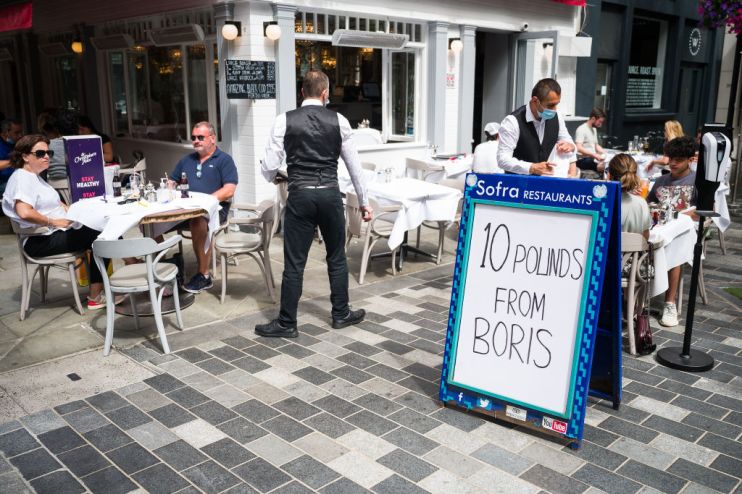UK inflation soars to 3.2 per cent in record jump

Inflation rose at the fastest rate since records began last month, new data showed today, though economists warned the jump was likely to be temporary.
The Consumer Prices Index rose 3.2 per cent in August, up from 2.0 per cent in July, the single biggest one-month jump since the ONS began publishing the data in 1997.
However, the ONS said that the size of the jump was likely a result of the government’s Eat Out to Help Out scheme from August 2020, which saw diners offered meals at a heavily discounted rate.
A cut to VAT for businesses in the hospitality sector also pushed prices down.
As the inflation data series runs in a 12-month rolling cycle, the impact of the policy on inflation is only now being seen.
The jump beat economists’ expectations, with a Reuters poll putting the expected reading at 2.9 per cent.
As a result of the record hike, Bank of England (BoE) Governor Andrew Bailey must publish, alongside the minutes of next week’s Monetary Policy Committee (MPC) meeting, an open letter to the Chancellor explaining why CPI inflation has deviated by more than one percentage point from the 2 per cent target.
In addition to the huge hike in catering services prices, used car prices also jumped 4.9 per cent, said Pantheon Macroeconomics chief UK economist Samuel Tombs, due to ongoing supply chain problems.
Petrol prices have also shot up in the last 12 months, with a litre of fuel now 20p more than it was a year ago.
Yael Selfin, chief economist at KPMG UK, warned that the record could be a sign of things to come.
“While inflation may ease slightly in September, it is expected to remain elevated and could climb higher during subsequent months. Recruitment difficulties, cost pressures for businesses, supply chain issues and structural changes post-Covid are all pointing to higher inflation until at least the end of this year”, she said.
“Higher inflation will inevitably raise questions for the Bank of England on the timing of tightening monetary policy and interest rate hikes to contain inflationary risks further down the line.
“However, any tightening now risks scuppering the recovery before it has a chance to take hold, so a delay until the middle of next year is likely.”
UBS economist Dean Turner agreed, saying that he did not expect much by way of reaction from the BoE’s policymakers.
“They will instead be focused on the medium-term outlook for prices and the labour market which, as seen in yesterday’s jobs market report, is holding up better than feared.
“These, we think, will keep the Bank of England in a hawkish mood, laying the ground for a rate hike in the first half of next year. In light of this, the prospects for the pound remain bright.”